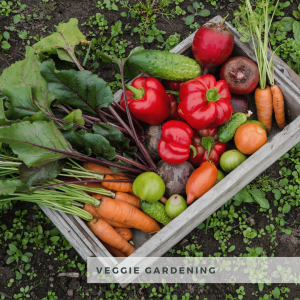HOW TO GROW WINTER VEGGIES
I find winter vegetable gardening easier than planting in Summer, you do not have to worry about water (most of the time) and it is rewarding. Homegrown winter vegetables are fresh and healthier for your family and will save you money too.
REQUIREMENTS
If you are starting from scratch look at doing raised gardens. This helps with drainage to cope with the winter rainfall. If you are not using raised beds avoid waterlogged areas, as this can rot the plant’s roots. Make sure your plot is exposed to as much light as possible. Areas that are mostly shaded on winter days will generally produce poorly.
PREPARATION
If you already have an established vegetable garden, follow these easy step:
- strip out all summer plants that have finished producing.
- add compost or vegetable mix to enrich the soil and improve drainage.
NO GARDEN SPACE?… SET UP ON YOUR DECK
Winter is a good time to use a warm, sheltered patio area to grow vegetables and winter herbs in pots, troughs, and hangers. Easy to access with the ability to move containers if necessary, the patio can be the perfect place to grow veggies like winter lettuce, spinach, silverbeet, celery, parsley, and kale that grow well in pots.

What to plant
Popular winter vegetable seedlings:
- Broad beans
- Broccoli
- Brussels sprouts
- Cabbage
- Celery
- Parsley
- Cauliflower
- Silverbeet
- Spring onion
- Spinach
- Winter lettuce
- Kale
These winter vegetables can be sown from seed late summer for planting out in autumn:
- Artichoke
- Endive
- Parsnips
- Rhubarb
- Carrots
- Leeks
- Peas
- Cress
- Onions
- Radish
N.B: Some vegetables listed are suitable for mild winter climates only as they can be frost tender – check on the back of the seed packets. Some crops will be just fine if you cover them with a frost cloth overnight to protect young tender tips.
Maintenance
With abundant rainfall and fewer pest and disease problems through winter, maintenance of your winter veggie patch is greatly reduced.
Mulch is your friend in Summer and Winter
Applying an autumn mulch of Pea Straw will restrict weed growth and help to keep the root zone of winter plants warm.
Planning ahead
Strawberry seedlings are best planted from June/July onwards, even though these won’t fruit until summer.
.
Leave a Reply